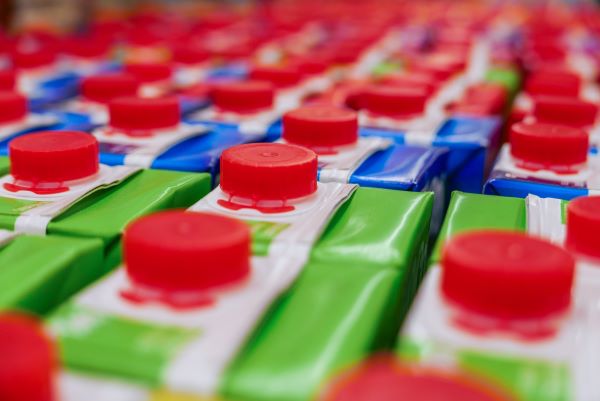Did you know that when you use the ACT Container Deposit Scheme (CDS) you’re helping to increase recycling and reduce landfill. The eligible drink containers you return through the ACT CDS are sorted by the scheme’s return point operator, Return-It, and recycled based on the type of material they are made from.
Aluminium cans
Aluminium cans are recycled by being melted down into aluminium alloys. This melting process removes any impurities such as liquid. As drink cans are made of pure aluminium, there are no stickers, paint or other parts that need to be removed. Once they are melted, the metal is poured into a mold, cooled and made into new products such as new cans.
Aluminium is lightweight, strong and highly resistant to corrosion making it ideal for a range of uses, for example it has been an aircraft construction material since the early days of flight. Aluminium does not lose quality when recycled, so your empty cans can be recycled into new cans over and over again. Recycled aluminium uses only 5% of the energy that manufacturing new metal out of raw materials takes.
Plastic bottles
Plastic bottles from soft drinks, juice and water are recycled by being processed into base level plastics and then manufactured into new plastic products, including bottles, polyester fabrics and heavy-duty plastic products.
It takes about 10 bottles to make one t-shirt or 63 bottles for a jumper. The plastic can also be turned into insulation for sleeping bags, or into carpet. Outdoor furniture often uses recycled plastic bottles, and some companies now use them to create highly durable decking for boardwalks, verandas and patios. The average Australian uses about 145kg of plastic each year so recycling plastic saves energy and resources.
Glass bottles
Recycling glass through the container deposit scheme ensures it is kept out of landfill where it can take a million years to break down.
High quality, low contamination glass can be sorted, crushed, melted, and remade into bottles and jars again. Glass does not degrade when it goes through this process, so it can be recycled indefinitely. Lower quality glass is suitable for recycling in construction projects. It is ground into particles and used instead of sand – base layers of asphalt can use up to 10 per cent recycled crushed glass this way.

Cartons
Flavoured milk cartons and juice boxes are made of liquid paperboard which can be recycled in the same way as any other cardboard or paper product. Liquid paperboard (or LPB) that is not recycled ends up in landfill and decomposes to release methane, which harms the environment.
Recycling cartons through the container deposit scheme can give them a second life as items such as cardboard boxes, notepads and toilet paper.
More information about recycling in the ACT is available on the ACT Government’s Recyclopeadia.